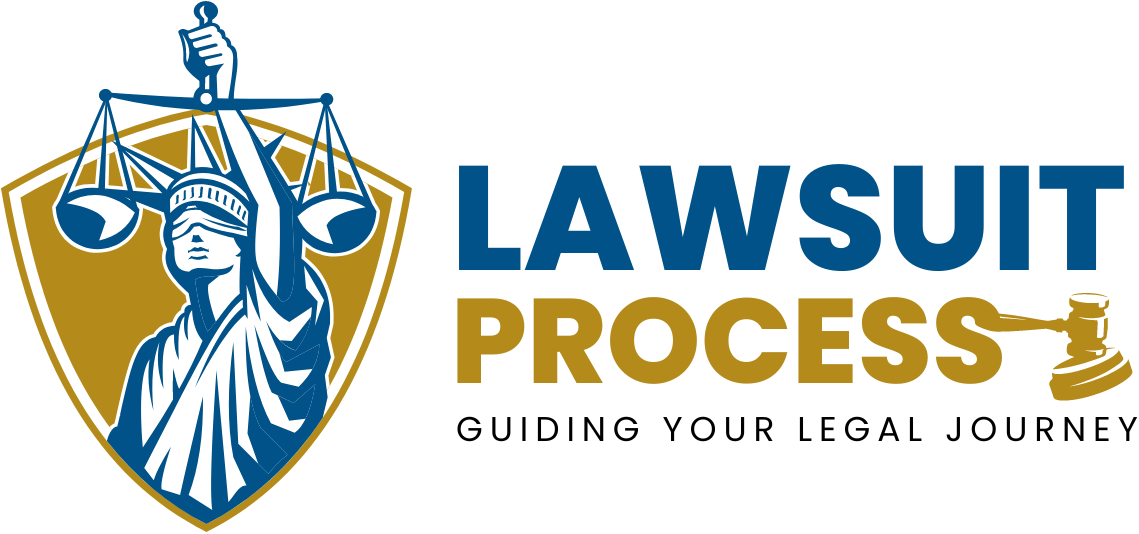Contracts are a fundamental part of doing business or entering into personal agreements. But what happens when one party doesn’t hold up their end of the bargain? In New York, if someone breaches a contract, the harmed party has the legal right to sue. This article walks you through how to file a breach of contract lawsuit in New York.
Table of Contents
- Understanding What a Breach of Contract Is
- Step 1: Confirm the Validity of the Contract
- Step 2: Review the Breach and Gather Evidence
- Step 3: Attempt to Resolve the Issue Out of Court
- Step 4: Decide Where to File the Lawsuit
- Step 5: Draft and File a Complaint
- Step 6: Serve the Defendant
- Step 7: Wait for the Defendant’s Response
- Step 8: Engage in the Discovery Process
- Step 9: Attend Pre-Trial Conferences
- Step 10: Go to Trial or Settle
- Do You Need an Attorney?
- Deadlines: Be Aware of the Statute of Limitations
- Key Takeaway
- Frequently Asked Questions (FAQs)
Understanding What a Breach of Contract Is
Before filing a breach of contract lawsuit, you must first understand what a breach of contract actually is. A breach occurs when one party fails to perform as agreed in a valid contract without a legal excuse.
There are several types of breaches:
- Material breach: A significant failure that undermines the contract’s purpose.
- Minor breach: A small deviation that still affects part of the agreement.
- Anticipatory breach: When one party makes it clear they won’t fulfill their part in the future.
- Actual breach: When the failure to perform has already happened.
Step 1: Confirm the Validity of the Contract
You can only sue for breach if the contract is legally binding. New York courts generally recognize contracts that meet the following criteria:
- Offer and acceptance
- Mutual consent
- Consideration (something of value exchanged)
- Legal purpose
- Capacity (all parties were legally able to enter into a contract)
While oral contracts can be valid in New York, written contracts are easier to enforce. Some contracts—like those for real estate or that cannot be performed within a year—must be in writing under the Statute of Frauds.
Step 2: Review the Breach and Gather Evidence
Next, evaluate the nature of the breach and collect all supporting documents. This includes:
- Copies of the signed contract
- Emails, texts, or letters showing communication about the agreement
- Invoices or payment records
- Any witness statements
- Proof of damages (financial or otherwise)
This evidence will form the basis of your case. Strong documentation increases your chance of winning.
Step 3: Attempt to Resolve the Issue Out of Court
Lawsuits can be expensive and time-consuming. It’s smart to try resolving the dispute informally first.
Options include:
- Sending a formal demand letter
- Negotiating directly with the other party
- Mediation through a neutral third party
In many cases, these approaches can lead to a fair settlement without involving the courts.
Step 4: Decide Where to File the Lawsuit
In New York, breach of contract lawsuits can be filed in different courts depending on the value of the claim:
- Small Claims Court: For disputes up to $10,000 in New York City (varies by county)
- Civil Court: For claims up to $50,000
- Supreme Court: For larger or more complex contract disputes
Choose the court that fits your situation. Also consider where the defendant resides or where the contract was to be performed.
Step 5: Draft and File a Complaint
To start the lawsuit, you’ll need to file a legal complaint. This document outlines:
- The parties involved
- The terms of the contract
- Details of the alleged breach
- The damages you are seeking
You’ll file the complaint with the Clerk of the Court and pay a filing fee. Once filed, you’ll get an index number or docket number for your case.
Step 6: Serve the Defendant
After filing, you must serve a copy of the summons and complaint to the defendant. In New York, this must be done within 120 days of filing.
Service can be done through:
- Personal delivery
- Substitute service (delivering to someone of suitable age and discretion)
- Service by mail, in some limited cases
Once service is complete, you’ll need to file an affidavit of service with the court.
Step 7: Wait for the Defendant’s Response
The defendant typically has 20 or 30 days to respond, depending on how they were served. They may:
- File an answer admitting or denying the claims
- File a motion to dismiss
- Submit a counterclaim against you
If the defendant fails to respond, you may ask the court for a default judgment.
Step 8: Engage in the Discovery Process
Discovery is the process where both sides gather and exchange information. This may include:
- Written questions (interrogatories)
- Requests for documents
- Depositions (sworn out-of-court testimonies)
Discovery helps both parties prepare for trial and often leads to settlements.
Step 9: Attend Pre-Trial Conferences
New York courts often schedule pre-trial conferences to manage the case. These may involve:
- Updating the court on progress
- Discussing settlement opportunities
- Setting trial dates
Your attorney—or you, if you’re representing yourself—must attend these sessions and comply with court orders.
Step 10: Go to Trial or Settle
If the case doesn’t settle, it will go to trial. You’ll present your evidence and witnesses, and the defendant will do the same. The judge (or jury, in some cases) will then make a decision.
If you win, the court may award damages, including:
- Compensatory damages (to cover your actual loss)
- Consequential damages (for losses indirectly caused)
- Specific performance (forcing the other party to fulfill the contract)
- Attorney’s fees (if allowed under the contract)
Do You Need an Attorney?
While you can represent yourself, having an attorney improves your chances—especially for high-value or complex cases. A lawyer can draft a solid complaint, navigate court rules, and negotiate better settlements.
For small claims, legal help may not be necessary, but consulting an attorney can still be useful.
Deadlines: Be Aware of the Statute of Limitations
In New York, the statute of limitations for most breach of contract claims is six years. If the contract was verbal, that time period may be shorter. You must file your case within this time frame or risk losing your right to sue.
Key Takeaway
Filing a breach of contract lawsuit in New York involves multiple steps—from confirming you have a valid contract to potentially going to trial. Understanding the process helps you prepare and increase your chance of a successful outcome.
- A breach of contract happens when one party fails to fulfill their obligations.
- The contract must be legally valid and enforceable in New York.
- Gather strong evidence before filing.
- Try to resolve the issue before going to court.
- Choose the right court based on the amount in dispute.
- File a formal complaint and serve the defendant properly.
- Engage in the discovery process and attend court conferences.
- Be prepared to settle or proceed to trial.
- Consulting an attorney is highly recommended for complex cases.
- Act within the statute of limitations to preserve your right to sue.
Frequently Asked Questions (FAQs)
1. What is considered a breach of contract in New York?
A breach of contract in New York occurs when one party fails to fulfill their agreed-upon obligations without a valid legal excuse. This includes not delivering services, missing deadlines, or violating specific terms outlined in the agreement.
2. Can I sue for breach of an oral contract in New York?
Yes, you can sue for breach of an oral contract in New York, as oral agreements are generally enforceable. However, proving the terms and existence of the agreement is more challenging. Some contracts, like those involving real estate, must be in writing under the Statute of Frauds.
3. What is the statute of limitations for breach of contract in New York?
The statute of limitations for written contracts is six years from the date of the breach. For oral contracts, the limitation period may be shorter. If you miss this deadline, your lawsuit will likely be dismissed.
4. How much can I sue for breach of contract in Small Claims Court in NYC?
In NYC Small Claims Court, you can sue for up to $10,000. Other counties in New York may have lower limits, typically around $5,000 or less.
5. What type of damages can I recover in a New York breach of contract case?
You may recover compensatory damages (to cover your actual losses), consequential damages (for foreseeable indirect losses), and in some cases, attorney’s fees if your contract allows it. Courts may also order specific performance in rare situations.
6. How do I prove a breach of contract in court?
You need to prove four things: (1) a valid contract existed, (2) you performed your obligations, (3) the other party breached the agreement, and (4) you suffered damages as a result. Supporting documents like contracts, receipts, emails, and witness statements are key.
7. Do I need a lawyer to file a breach of contract lawsuit in New York?
You’re not required to have a lawyer, especially in Small Claims Court, but hiring one is recommended for complex or high-value disputes. An attorney can help you draft legal documents, negotiate settlements, and represent you in court.
8. Can I recover attorney’s fees in a New York breach of contract case?
Generally, attorney’s fees are not awarded unless the contract explicitly allows it or a specific law applies. Always check your contract to see if it contains an attorney fee provision.
9. What court handles breach of contract lawsuits in New York?
The court depends on the amount in dispute. Small Claims Court handles cases up to $10,000. Civil Court can hear cases up to $50,000. Larger or more complex cases go to the Supreme Court of New York (the state’s trial-level court).
10. How long does a breach of contract lawsuit take in New York?
The timeline varies. A Small Claims case may take a few months, while a Supreme Court case can take a year or more, depending on the complexity, court backlog, and whether the case settles or goes to trial.
11. What’s the process for filing a breach of contract claim in NYC Civil Court?
You’ll need to draft a complaint, file it with the court, pay the filing fee, and serve the defendant. Then, the case proceeds through discovery, pre-trial conferences, and possibly trial if it doesn’t settle.
12. Can I file a breach of contract lawsuit online in New York?
Some courts offer e-filing through the NYSCEF (New York State Courts Electronic Filing) system, especially for Supreme Court cases. Small Claims and Civil Court filings usually require in-person filing, though rules vary by county.
13. What happens if the other party ignores the lawsuit?
If the defendant doesn’t respond within the required time frame, you can request a default judgment. The court may award you damages without a trial if your claim and evidence are strong.
14. Is mediation required before suing for breach of contract in New York?
Mediation isn’t required but is often encouraged by the courts. Some contracts include a mediation clause that must be followed before filing a lawsuit.
15. What if both parties breached the contract?
If both sides breached the agreement, the court will assess who is more at fault and to what extent. This may reduce the damages you can recover or result in no award at all.
16. What documents should I bring to court for a breach of contract case?
Bring a signed copy of the contract, proof of performance, communications (emails, texts), receipts, invoices, and anything that supports your claim or counters the other party’s defense.
17. How do I write a breach of contract demand letter in New York?
Include the contract terms, a description of the breach, what you expect as a remedy (payment, service, etc.), and a deadline to comply. Keep it professional and concise.
18. Can a verbal agreement be enforced in NYC Small Claims Court?
Yes, verbal agreements can be enforced if you can prove the terms and that a valid contract existed. Witnesses and written communication can help support your case.
19. What are “material” vs. “minor” breaches under New York law?
A material breach goes to the core of the agreement and usually justifies a lawsuit. A minor breach is less serious and may not excuse the non-breaching party from fulfilling their obligations.
20. Can I sue a business for breach of contract in New York?
Yes. If a business failed to fulfill its contractual obligations, you can sue them in the appropriate New York court. You’ll need to prove the same elements as in any contract case.
21. How do I know if my contract is legally binding in New York?
A contract is legally binding if it includes offer, acceptance, mutual consent, consideration, and lawful purpose. Written contracts are easier to enforce, but oral ones may still be valid.
22. Can I sue for emotional distress in a breach of contract case?
No. Breach of contract cases in New York typically allow only financial damages. Emotional distress claims are usually reserved for tort cases, not contract disputes.
23. What is anticipatory breach, and how is it handled in New York?
Anticipatory breach occurs when a party declares in advance they won’t fulfill the contract. In New York, you can sue as soon as the breach is anticipated, rather than waiting for the deadline to pass.
24. Can I request specific performance in a New York contract dispute?
Yes, but only in rare cases—usually involving unique goods or real estate. The court may order the breaching party to fulfill the contract instead of paying damages.
25. What are my options if the defendant countersues?
You’ll need to defend yourself against the counterclaim while pursuing your original claim. Respond with evidence, and consider legal advice to protect your position.
26. Can a breach of contract also be fraud in New York?
Yes, if the breach involves intentional deceit or misrepresentation. In that case, you may file a separate claim for fraud, which can carry additional remedies.
27. How do I file a motion for default judgment in a contract case?
File a request with the court, include proof of service and evidence of the breach, and ask for judgment in your favor. The court will review your documentation and decide.
28. What are consequential damages in New York contract law?
These are damages that result indirectly from the breach, such as lost profits or business opportunities. They must have been foreseeable at the time the contract was made.
29. Can a breach of contract case be settled out of court in New York?
Absolutely. Most contract disputes settle before reaching trial. Mediation, negotiation, or direct discussions often lead to a faster and less costly resolution.
30. How much does it cost to file a breach of contract lawsuit in NYC?
Filing fees vary by court. In Small Claims Court, fees range from $15 to $20. In Civil Court or Supreme Court, fees can range from $45 to over $200. You may also incur service and legal costs.










